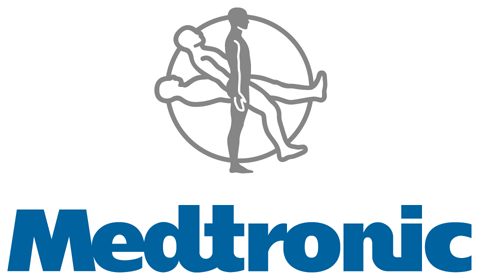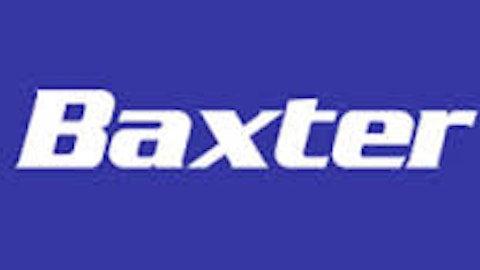Earnings season is nearing its end after more than a month of investor excitement and disappointment. While most of the health care sector has already reported earnings, the largest pure medical device company, Medtronic, Inc. (NYSE:MDT), came up to bat with its third-quarter report on Tuesday. The company’s stock didn’t react very well — shares fell 2.8% during the day — but what should you take away from this medical device leader’s earnings?

First, some good news: Medtronic’s earnings did rise nearly 6% for the third quarter, with net profit coming in at $988 million. The company recorded earnings per share of $0.93 excluding one-time items; together, these figures jumped considerably from last year’s $935 million and $0.88 per share. Furthermore, Medtronic’s earnings beat analyst estimates, which had projected $0.91 in quarterly EPS.
Medtronic retained its EPS guidance of $3.66 to $3.70 for the current full year, and investors got an added benefit later in the day. The company’s leadership told analysts that the medical device excise tax now in effect will take less of a bite out of the company’s finances than earlier predicted. While Medtronic had estimated $50 million in tax-related costs in 2013, it now projects between $20 million and $25 million to cover the tax based upon a slower ramp-up of the measure than had been predicted. It’s an improvement that shareholders will no doubt embrace.
Revenue also managed to rise for the quarter, gaining 4% to reach just over $4 billion. So, where did the company hit all the marks — and where does it need to turn things around?
Europe weighs in on growth
Medtronic’s quarter wasn’t all roses. Europe, which has hit medical device companies hard as it contends with its fiscal crisis, continued to weigh on the company’s sales. Revenue from the continent fell around 1% after gaining the prior three quarters, a troubling trend considering that Europe accounts for around a fourth of Medtronic’s revenue.
Despite Europe’s woes, however, Medtronic is still handling international sales well. The company’s international segment saw total revenue growth of 7% on a constant currency basis, and emerging market sales grew by 20% before currency fluctuations were taken into account. Growth in developing economies will help Medtronic keep up with rivals; competitor Abbott Laboratories (NYSE:ABT) has followed a similar path already in securing future growth by spreading into developing nations. With around 46% of Medtronic’s revenue derived from sales abroad, emerging markets will become more important as Europe continues to slide.
CEO Omar Ishrak said all the right things to believe he’ll keep expanding the company abroad, saying, “We remain committed to delivering dependable growth in a changing health care environment…We are playing a leading role in transforming global health care by implementing our long-term strategies of economic value and globalization.”
Good times outside of the U.S. for Medtronic, even with Europe on the retreat… but not all of the company’s divisions are sharing the joy.
CRM sales fall, unsurprisingly
No player in the cardiac rhythm management industry is safe — and Medtronic’s earnings show it’s not immune to a declining market. Sales in its cardiac rhythm disease management, or CRDM, segment fell 1% on a constant currency to just under $1.72 billion for the quarter. This small decline is actually much better than many of Medtronic’s CRM competitors are faring; Boston Scientific Corporation (NYSE:BSX) lost 7% in CRM revenue over the full year in 2012, while St. Jude Medical, Inc. (NYSE:STJ) took a 6% year-over-year hit in CRM sales in its most recent quarter.
Things could be a lot worse for Medtronic given the fares of its competitors. However, the company would be better off minimizing its exposure to this toxic industry; the CRM market is already saturated in advanced economies, with little room for growth in the near future. Fortunately, Medtronic’s other businesses are making up for this segment’s losses.
Drug-eluting stents are powering the new wave of growth at Medtronic, as coronary revenue grew by 19% on a common currency. Stent sales themselves picked up 42%, performing exceptionally well in growing market share in Japan. Rivals such as Boston Scientific and Abbott have poured money into drug-eluting stent research recently, and Medtronic would be wise to keep stretching for solid growth in this lucrative market.
Medtronic’s neuromodulation sales also saw good growth with revenue rising 7%. This is another industry where competitors have managed to capture growth despite losses elsewhere; Boston Scientific, in particular, saw 9% growth in its neuromodulation business to lead all divisions. Stryker Corporation (NYSE:SYK)‘s neurotechnology and spine unit, a major competitor of Medtronic’s, also saw around double-digit growth this past quarter. Medtronic’s own spine revenue fell 3% for the quarter, but the company’s “Core Spine” revenue, which makes up the majority of the division’s sales, remained flat as U.S. physicians continue to accept the company’s products. Further experience with Medtronic’s products in the medical community will only help the division’s sales rise in the future.
Medtronic’s steady march forward
Investors weren’t too pleased with Medtronic’s conservative guidance and modest growth, but there are plenty of reasons for optimism. Sagging CRM sales aside, many of the company’s divisions are growing at a healthy pace, and even the fall in spine sales shouldn’t be a cause for concern. While Europe continues to be a problem for the medical device sector at large, Medtronic’s expansion in emerging markets will help the company and reward investors in the long run. The third quarter wasn’t a home run for Medtronic, but it was a base hit that will continue to secure this company’s spot among the top medical device players in the world.
The article Europe, CRM Woes Can’t Subdue Medtronic’s Earnings originally appeared on Fool.com and is written by Dan Carroll.
Fool contributor Dan Carroll has no position in any stocks mentioned. The Motley Fool owns shares of Medtronic.
Copyright © 1995 – 2013 The Motley Fool, LLC. All rights reserved. The Motley Fool has a disclosure policy.





